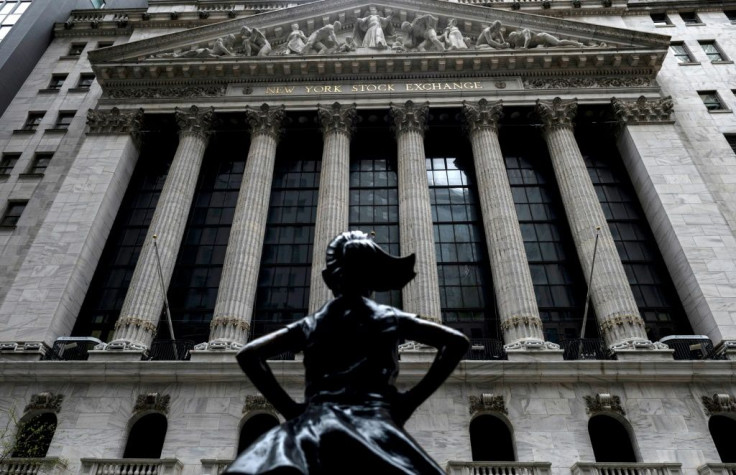Giddy US Stock Market Belies Economic Gloom
Last week's Labor Department report showing the United States lost a staggering 20.5 million jobs in April prompted a decisive response from Wall Street: Major indices surged nearly two percent.
The reaction was the latest instance of the market's buoyancy despite a barrage of bad news showing less economic activity, less consumer confidence and less business investment.
The blue-chip Dow Jones Industrial Average has risen more than 30 percent since hitting a low on March 23 as officials around the United States imposed tough lockdown measures that shuttered most economic activity, and analysts increasingly believe a quick recovery from the downturn is unlikely.
"When you look to next month's employment data, and next quarter's earnings information, things are only expected to get worse," said Sam Stovall, chief investment strategist at CFRA Research.
"But Wall Street is looking beyond the valley if you will."
Investors have been encouraged by moves by countries in Asia and Europe and several US states to reopen their economies.

Disney, for example, reopened its giant amusement park in Shanghai on Monday -- albeit at reduced capacity and with guests and employees donning face masks.
Stovall expects the unprecedented relief funding from Congress, along with aggressively stimulus measures from the Federal Reserve, to lead to higher corporate profits in 2021.
Adding to the market lift has been the belief that "worse-than-expected macro data will be met with further stimulus from the Fed," Stovall said.
The stock market itself is not a true representation of the American economy.
Businesses listed on the New York Stock Exchange and Nasdaq are generally bigger, older and more international than most of the small business that play a big part in the real economy in the United States.

These companies are also generally better capitalized, which permits them to withstand the blows of an economic shock more ably than small shops and mom-and-pop restaurants.
The major indices give heavy weight to large technology companies that have seen many of their businesses benefit as much of the population engages in telework and relies on e-commerce for an increasing portion of their needs.
Microsoft, Apple, Amazon, Alphabet, and Facebook account for about 20 percent of the S&P 500, which comprises the 500 biggest companies.
"Investors keep choosing these giants because their profit margins are holding up and that makes them poised to grow even bigger," said Guilhem Savry, head of macro and dynamic allocation at Unigestion.
At the same time, the services sector, a pivotal part of the economy in terms of employment, is "under-represented in major stock indices," Savry said.
The stock market's surge is seen as exacerbating income inequality in the US. According to a study by the Federal Reserve, a bit more than 50 percent of US stock is held by the wealthiest 10 percent of the nation.
The market's relationship with the real economy is "counterintuitive," said Jay Ritter, a professor at the Warrington College of Business at the University of Florida.
"Economic growth in the long run is not related to stock returns," Ritter said, calling the relationship "pretty weak."
Ritter pointed to China, which saw annual per-capita income grow by nine percent between 1993 and 2018. During that same period, the Chinese stock market fell by an average of 1.9 percent per year.
On the flip side, Ritter points to South Africa, where the stock market has long produced strong returns despite middling growth.
"In the long-run, what matters is dividends and earning per share growth," Ritter said.
In the US, it isn't clear that a surprising improvement in the economy would boost the market further. An unexpected drop in unemployment could prompt the Fed to reverse course on its stimulus measures and start discussing lifting interest rates, pressuring equities.
© Copyright AFP 2024. All rights reserved.





















